- 여성 및 취약집단의 권리 (Rights of Women, Other At-Risk Groups)
- 강제노역 (Forced Labor)
- 국경 통제 강화 (Border-Tightening)
- 국제사회의 주요 행위자들 (Key International Actors)

아래는 세계적인 인권단체인 휴먼라이츠워치(HRW : Huam Rights Watch)의 2019년도 북한 인권 전반에 대한 보고서 전문이다. 한글 보고서와 영문 보고서 전문이다.
- 국제적인 인권 기제 (International Human Rights Mechanisms)
- 여성 및 취약집단의 권리 (Rights of Women, Other At-Risk Groups)
- 강제노역 (Forced Labor)
- 국경 통제 강화 (Border-Tightening)
- 국제사회의 주요 행위자들 (Key International Actors)
[한글전문]
북한은 아직까지 세계에서 가장 억압적인 국가에 속한다. 국무위원장이자 노동당 위원장인 김정은은 집권 7년차로서 거의 절대적인 정치 권력을 행사하고 있다. 북한은 표현의 자유, 집회결사의 자유, 종교의 자유를 포함해 모든 시민적 자유와 정치적 자유를 제한한다. 또 모든 조직된 정치적 반대행위, 독립 언론, 시민사회, 노조를 금지한다.
북한 정부는 공포 정치와 주민 통제를 유지하기 위해 임의 체포와 처벌, 구금자에 대한 고문, 처형을 일상적으로 자행한다. 정부와 보안당국은 인프라를 건설하고, 사업을 시행하고, 김정은 일가와 노동당을 찬양하는 활동과 행사를 수행하기 위해 여성과 아동, 수감자들을 포함한 주민들에게 무급의 강제 노역을 시킨다.
북한 정부는 계속해서 중국으로의 무단 이동을 엄격히 통제하며, 중국 당국과의 협력 하에 북한 난민들을 체포하여 송환하고, 외부 세계와 접촉한 주민들을 처벌하였다. 또 여성과 아동, 장애인을 포함한 수많은 취약계층 주민들의 권리를 보호하거나 증진하지 않고 있다.
2017년에 북한은 16번의 시험으로 23발의 미사일을 발사하고 여섯 번의 핵실험을 통해 한반도의 긴장감을 고조시켰다. 그러나 2018년 2월 평창동계올림픽을 기점으로 북한은 남한과 미국, 중국, 러시아 등과의 관계에서 새로운 외교적 노력을 기울이기 시작했다. 김정은 위원장은 그동안 세계의 주요 지도자들과 교류하지 않았으나, 3월부터 9월까지 미국의 도널드 트럼프 대통령과 한 번, 문재인 대통령 및 중국의 시진핑 주석과는 각각 세 번, 러시아의 세르게이 라브로프 외무장관과 한 번 만났다.
* 국제적인 인권 기제
북한은 아동권리협약, 여성차별철폐협약, 장애인권리협약, 시민적·정치적 권리에 관한 국제협약, 경제적·사회적 및 문화적 권리에 관한 국제협약 등 다섯 개의 인권 조약을 비준했다. 그러나 시민적·정치적 권리에 관한 국제협약과 경제적·사회적 및 문화적 권리에 관한 국제협약 등 몇몇 협약에 대해 북한은 10년 이상 국가 보고서를 제출하지 않았다.
국제사회는 북한이 유엔의 인권조약에 참여하고 2014년도 유엔북한인권조사보고서의 결과를 수용하며 거기에 대한 조치를 취하도록 지속적인 압력을 넣어왔다. 유엔조사보고서에 의하면, 북한은 몰살, 처형, 노예화, 고문, 구금, 강간과 기타 성폭력, 강제 낙태 등의 인권범죄를 자행했다.
2017년 12월 11일 유엔안전보장이사회는 북한의 심각한 인권 상황을 세계 평화와 안보에 대한 위협으로 간주하고 4년 연속 의제로 채택했다. 유엔총회는 2017년 12월 19일에 표결없이 북한의 인권상황을 규탄하는 결의안을 채택했다. 2018년 3월 23일 유엔인권위원회는 인권범죄를 자행한 북한 관료들을 기소할 수 있도록 처벌 기제를 강화할 필요가 있음을 강조하는 결의안을 표결없이 통과시켰다. 2018년 11월 15일 유엔총회 제3위원회는 북한에 대한 인권결의안을 채택하여 12월 유엔총회 전체 회의에서 이 결의안이 채택될 수 있는 기반을 마련했다. 이로써 유엔은 14년 연속 북한에 인권 상황의 전면적인 개선을 촉구했다.
북한은 서울유엔인권사무소나 토마스 오헤아 퀸타나 북한인권 특별보고관과의 협력을 거부하고 있다.
* 여성 및 취약집단의 권리
북한 여성들은 일반 주민들이 일상적으로 경험하는 인권침해에 더하여 다양한 형태의 성폭력과 젠더폭력을 경험한다. 여기에는 구금시설에서의 강간 등 성폭력과 고문, 성착취, 중국인과의 강제혼인, 성폭력, 젠더폭력과 차별이 포함된다.
성차별은 어렸을 때부터 시작되는데, 학교에서는 남학생과 남자 교사가 리더의 역할을 하고 여학생은 순종적인 성역할을 따르도록 사회화된다. 여성들은 남성들에 비해 대학 입학이나 군 입대, 노동당 가입이 더 어렵다. 노동당 가입은 북한에서 권력으로 가는 관문이다. 북한 당국은 여성에 대한 폭력을 자행하고, 성폭력 피해를 입은 여성과 여아에게 어떠한 형태의 체계적인 보호나 보상을 제공하지 않으며 가해자를 처벌하지 않는다.
북한은 또 ‘성분’이라는 사회정치적 계급체제를 이용하여 고용과 주거, 교육 등 주요 영역에서 정치 성향에 따라 개인과 그 가족들을 차별한다. 이 체제에서 주민들은 핵심, 동요, 적대 계층으로 구분된다. 그러나 관료층의 부정부패로 인해 성분에 따른 제약을 피해갈 수 있는데, 정부 관리들이 뇌물을 받고 허가를 내주거나, 장마당 활동에 눈을 감거나, 국내외로의 이동을 허용해주기 때문이다.
* 강제노역
북한 당국은 아동을 포함한 일반 주민들에게 노역을 강요함으로써 주민들을 통제하고 경제를 유지한다. 대다수의 주민들은 삶의 특정 시점에서 무급 노역에 참여해야 한다.
북한의 일반 노동자들은 직업을 선택할 자유가 없다. 정부는 도시와 농어촌 지역의 남성과 미혼 여성들에게 일을 배정한다. 이들 기업체 중 다수는 급여를 지불하지 않기 때문에 사람들은 다른 일거리를 통해 생계를 유지해야 하며, 배정된 직장에서 시간을 빼기 위해 뇌물을 제공한다. 무단 결근은 강제노동수용소(로동단련대)에서 3-6개월형에 처해질 수 있는 범죄 행위이다.
북한에 있을 당시 학생이었던 탈북민들은 휴먼라이츠워치와의 인터뷰에서 학생들이 한 번에 한 달씩, 1년에 두 차례 농장에서 의무적으로 노역을 해야 했다고 증언했다. 또 다른 증언에 의하면, 일부 학교에서는 교직원들의 급료를 마련하고, 학교 시설을 관리하고, 정부의 선전활동을 수행하기 위해 10-16세의 학생들에게 매일 노역을 시켰다.
다수의 주민들은 또 돌격대라는 준군사조직에 참여해야 한다. 이러한 돌격대는 노동당이 관리하고 운영하며, 주로 건물과 인프라 건설 사업에 동원된다. 정치범 수용소(관리소)와 일반 교도소(교화소), 단기 구금시설 등에 수감된 주민들도 혹한의 날씨에 별다른 방한복도 없이 노동하는 등 위험한 조건에서 고된 노동을 강요당한다.
* 국경 통제 강화
김정은 정권은 중국과의 국경지대에 검문 초소의 수를 늘리고, CCTV 카메라와 철조망을 설치하여 주민들의 무단 이탈을 막기 위한 조치를 강화했다. 또 국경지대에서 중국 휴대전화 서비스를 차단하고, 국외에 거주하는 북한인들과 연락하는 주민들을 체포하기도 했다.
북한 주민들이 안전한 제3국으로 탈출하도록 도와주는 지원단체들은 2017년 여름 중국 정부와 북한 당국이 단속을 강화한 후 북한 주민들의 탈북을 지원하는데 어려움을 겪고 있다고 말했다. 2011년 김정은이 권좌에 오르기 전에 2,706명의 탈북민들이 남한에 도착했는데, 이 수치가 2017년에는 1,127명 그리고 2018년 1월부터 9월까지는 808명으로 줄어들었다.
인민보안성은 탈북을 “국가에 대한 반역”죄로 간주한다. 중국에서 강제송환된 북한인들에게는 가혹한 처벌이 뒤따른다. 당국은 송환된 사람들이 중국에서 무엇을 했는지를 평가한 후 처벌 수준을 정한다. 중국에서 거주하거나 일하거나 붙잡혀온 주민들은 교화소나 로동단련대로 보내진다. 남한으로 탈북하려다 붙잡힌 주민들은 더 가혹한 처벌을 받으며 북한에서 가장 잔혹한 정치범 수용소인 관리소로 보내질 수 있다. 관리소에서는 수감자들에게 고문과 성폭력, 강제노역, 기타 비인간적인 가혹행위가 자행된다.
중국으로 탈출하는 북한인들은 송환시 처벌받을 것이 분명하기 때문에 현장 난민(refugees sur place)으로 보호되어야 한다. 중국은 1951년 난민협약과 1967년 난민협약 의정서의 비준국으로서 난민을 보호할 의무가 있음에도 이를 방기하고 있다. 중국 정부는 북한인들이 체류하는 국경지역으로 유엔난민기구의 직원들이 들어가는 것을 막고 있다.
* 국제사회의 주요 행위자들
한국의 문재인 정부는 북한의 인권상황에 대해 명확한 정책을 밝히지 않고 있다. 2016년 9월에 발효된 북한인권법은 한국 정부가 유엔인권조사위원회 보고서의 권고사항을 이행하고, 탈북민과 북한에 억류된 남한인들을 지원하고, 북한의 인권 현황을 조사하여 보고서를 발간할 것을 요구하고 있다. 이 법률은 또 인권 침해 조사와 관련 조치에 재원을 조달하도록 북한인권재단의 설립을 명시하고 있으나 아직까지 한국 정부는 이 조항을 이행하지 않고 있다. 문재인 대통령은 4월과 5월, 9월에 김정은 위원장을 만났으나 북한의 인권 상황에 대해서는 언급하지 않았다.
일본은 1970년대와 1980년대에 납북된 일본인 12명의 송환을 지속적으로 요구하고 있다. 일본의 몇몇 시민단체는 납치된 사람의 수가 이보다 훨씬 많다고 주장한다. 8월 19일에는 “지상낙원” 캠페인의 피해자 5명이 북한을 상대로 손해배상 소송을 제기했다. “지상낙원” 캠페인은 거짓 선전을 통해 일본에 거주하고 있던 약 93,000명의 조선인(자이니치)과 일본인들을 북한으로 이주시킨 사건이다.
미국은 세계에서 유일하게 북한의 정부 기관과 김정은 및 기타 고위 간부들을 상대로 인권상황과 관련한 제제를 가하고 있다. 도널드 트럼프 대통령은 2018년 국정연설에 탈북민을 초청하고 또 이 국정연설과 11월 서울에서 한 연설에서 북한의 인권상황을 규탄했지만 6월 싱가포르에서 열린 김정은 위원장과의 회담에서는 공개적으로 인권 문제를 제기하지 않았다. 미국측 협상단이 이후 북한과의 핵협상에서 인권 문제를 제기했다는 증거는 거의 없다.
중국은 국제적으로 북한에 가장 큰 영향력을 행사하는 국가이다. 중국은 북한이 사용하는 연료의 대부분을 공급하며, 북한의 가장 큰 교역국이다. 중국은 북한에 인권 상황을 개선하도록 압력을 행사할 수 있는 능력이 있으나 2018년 3월과 5월, 6월에 시진핑 주석과 김정은 위원장이 만난 자리에서 그러한 압력을 행사하지 않았다.
----------------
[영어전문]
North Korea remains one of the world’s most repressive states. In his seventh year in power, Kim Jong-un—who serves as chairman of the States Affairs Commission and head of the ruling Workers’ Party of Korea—continues to exercise almost total political control. The government restricts all civil and political liberties, including freedom of expression, assembly, association, and religion. It also prohibits all organized political opposition, independent media, civil society, and trade unions.
The government routinely uses arbitrary arrest and punishment of crimes, torture in custody, and executions to maintain fear and control over the population. The government and security agencies systematically extract forced, unpaid labor from its citizens— including women, children, detainees, and prisoners—to build infrastructure, implement projects, and carry out activities and events extolling the ruling Kim family and the Workers’ Party of Korea (WPK).
The government continued its tight restrictions on unauthorized cross-border travel to China, collaborated with Chinese authorities to capture and return North Korean refugees, and punished North Koreans making contact with the outside world. The government fails to protect or promote the rights of numerous at-risk groups, including women, children, and people with disabilities.
In 2017, the Democratic People’s Republic of Korea (DPRK) fired 23 missiles during 16 tests and conducted a sixth nuclear test, raising tensions on the Korean peninsula to their highest level in decades. But starting February 2018 at the Pyeongchang Winter Olympics, North Korea engaged in new diplomatic efforts with South Korea, the United States, China, Russia, and others. Kim Jong-un had previously not met with any major world leaders, but between March and September, he met once with US President Donald Trump, three times each with South Korean President Moon Jae-in and Chinese President Xi Jinping, and once with Russian Foreign Minister Sergei Lavrov.
International Human Rights Mechanisms
North Korea has ratified five human rights treaties: the Convention on the Rights of the Child (CRC), the Convention on the Elimination of All Forms of Discrimination against Women (CEDAW), the Convention of the Rights of Persons with Disabilities (CRPD), the International Covenant on Civil and Political Rights (ICCPR), and the International Covenant on Economic, Social and Cultural Rights (ICESCR), though in some cases (such as the ICCPR and ICESCR) North Korea’s state report is more than a decade overdue.
The international community has continued to press the North Korean government to engage with UN human rights mechanisms and to accept and act on the findings of the 2014 United Nations Commission of Inquiry (COI) report on human rights in the Democratic People’s Republic of Korea (DPRK, North Korea), which found the government committed crimes against humanity, including extermination, murder, enslavement, torture, imprisonment, rape and other forms of sexual violence, and forced abortion.
On December 11, 2017, for the fourth consecutive year, the UN Security Council put North Korea’s egregious human rights violations on its formal agenda as a threat to international peace and security. On December 19, 2017, the UN General Assembly adopted a resolution without a vote condemning human rights abuses in North Korea. On March 23, the Human Rights Council adopted without a vote a resolution emphasizing the need for advancing mechanisms to ensure that North Korean officials responsible for crimes against humanity are held to account. On November 15, the UN General Assembly’s Third Committee adopted a human rights resolution on North Korea, setting the stage for the full UN General Assembly to adopt the resolution in December, marking the 14th year in a row the UN has called on North Korea to significantly improve its rights record.
North Korea refuses to cooperate with the Office of the High Commissioner for Human Rights in Seoul or with Tomas Ojea Quintana, the UN special rapporteur on the situation of human rights in North Korea.
Rights of Women, Other At-Risk Groups
Women in North Korea suffer a range of sexual and gender-based abuses, in addition to facing violations of their rights common to the rest of the population. These include rape and other sexual violence and torture in detention facilities, sexual exploitation, or forced marriage of North Korean women in China, and sexual and gender-based violence and discrimination.
Gender-based discrimination begins at childhood, where schools favor boys and men in leadership roles, and girls are socialized to uphold stereotyped, subservient gender roles. Women face greater difficulty than men in being admitted to university and in joining the military and the ruling WPK, which serves as the gateway to any position of power. State authorities perpetrate abuses against women, and systematically fail to offer any protection or justice to women and girls facing sexual abuse.
North Korea also discriminates against individuals and their families on political grounds in key areas such as employment, residence, and schooling by applying songbun, a socio-political classification system that, from its creation, grouped people into “loyal,” “wavering,” or “hostile” classes. However, pervasive corruption among officials enables some room to maneuver around the strictures of the songbun system, with government officials accepting bribes to grant permissions, permit market activities, and allow travel domestically or abroad.
Forced Labor
The government uses forced labor from ordinary citizens, including children, to control its people and sustain its economy. A significant majority of North Koreans must perform unpaid labor at some point in their lives.
Ordinary North Korean workers are not free to choose their own job. The government assigns jobs to both men and unmarried women from cities and rural areas. In many cases, these enterprises do not compensate them, forcing them to find other jobs to survive and pay bribes to be absent at their assigned workplace. Failing to show up for work without permission is a crime punishable by three to six months in forced labor training camps (rodong dallyeondae).
Former North Korean students told Human Rights Watch their schools forced them to work for free on farms twice a year, for one month at a time. Some sources reported that their schools forced students aged between 10 and 16 to work every day to generate funds to pay teachers and school administrators, maintain school facilities, and carry out government campaigns.
The government also compels many North Koreans to join paramilitary forced labor brigades. These brigades (dolgyeokdae) are controlled and operated by the ruling party and work primarily on buildings and infrastructure projects. Prisoners in political prisons (kwanliso), ordinary prison camps (kyohwaso), and short-term detention facilities also face back-breaking forced labor in dangerous conditions, sometimes in winter weather, without proper clothing.
Border-Tightening
Kim Jong-un’s government bolstered efforts to prevent people from leaving North Korea without permission by increasing the number of border guards, CCTV cameras, and barbed wire fences on its border with China. Other tactics included jamming Chinese mobile phone services at the border and targeting for arrest those communicating with people outside the country.
Guiding networks that help North Koreans to escape to a safe third country said they continued to face limited capacity to help those fleeing, following an apparent intensified crackdown in the summer of 2017, by the Chinese government and North Korea. In 2011, before the rise of Kim Jong-un, 2,706 North Koreans arrived in South Korea, compared to 1,127 in 2017, and only 808 between January and September 2018.
The Ministry of People’s Security considers defection to be a crime of “treachery against the nation.” Harsh punishments apply to North Koreans forcibly returned by China. The severity of punishment depends on authorities’ assessments of what returnees did while in China. North Koreans caught working or living in China are sent to long term ordinary prisons (kyohwaso) or short-term detention facilities (rodong danryeonda). Those discovered trying to reach South Korea are treated more harshly and may be sent to North Korea’s horrific political prison camp system (kwanliso), where prisoners face torture, sexual violence, forced labor, and other inhuman treatment.
North Koreans fleeing into China should be protected as refugees sur place because of the certainty of punishment on return. China fails to meet its obligation to protect refugees as a state party to the 1951 Refugee Convention and its 1967 protocol. Beijing denies permission to the staff of the UN Refugee Agency to travel to border areas where North Koreans are present.
Key International Actors
South Korea’s Moon administration has not made its policy clear on North Korean human rights issues. The North Korean Human Rights Act, which came into effect in September 2016, requires Seoul to implement the recommendations of the COI report, assist North Koreans who escaped their country and South Korean nationals detained in North Korea, and research and publish status reports on human rights conditions in North Korea. To date, South Korea has still not implemented provisions of that law mandating the creation of a North Korea Human Rights Foundation to fund further investigations and action on rights abuses. Moon met with Kim in April, May, and September, but did not address the human rights situation in North Korea.
Japan continues to demand the return of 12 Japanese citizens whom North Korea abducted in the 1970s and 1980s. Some Japanese civil society groups insist the number of abductees is much higher. On August 19, five victims of the “Paradise on Earth” campaign, which used false promises to recruit approximately 93,000 ethnic Koreans (Zainichi) and Japanese nationals in Japan to go to North Korea between 1959 and 1984, sued the North Korean government for damages.
The United States government is still the only government in the world that imposes human rights-related sanctions, including on government entities, on Kim Jong-un, and on several other top officials. US President Donald Trump, despite inviting a defector to his 2018 State of the Union and raising North Korea’s human rights abuses in both that speech and a November speech in Seoul, did not raise human rights issues publicly when he met with Kim Jong-n at their summit in Singapore in June, and there is little indication that US negotiators raised human rights issues in subsequent counterproliferation negotiations with North Korea.
China is the most influential international actor in North Korea. Most of North Korea’s energy supplies come from China and it is the country’s largest trading partner. China has the ability to pressure North Korea on human rights, but has declined to do so, including during President Xi Jinping’s three meetings with Kim in 2018—in March, May, and June.
뉴스타운
뉴스타운TV 구독 및 시청료 후원하기
뉴스타운TV



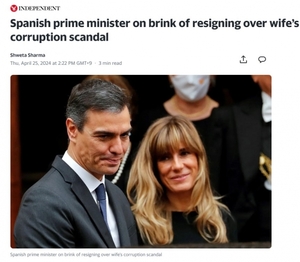
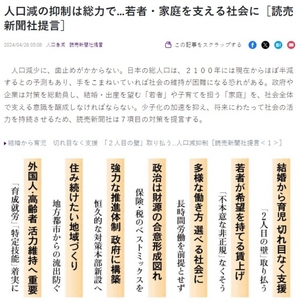
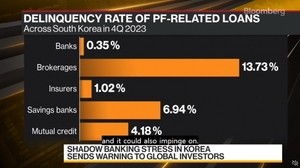
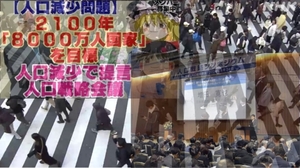
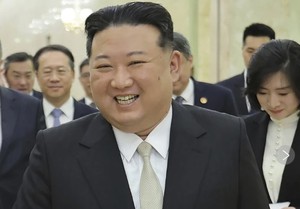

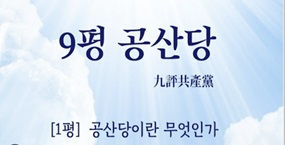
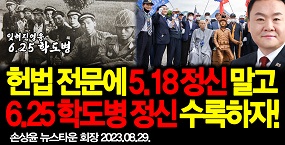
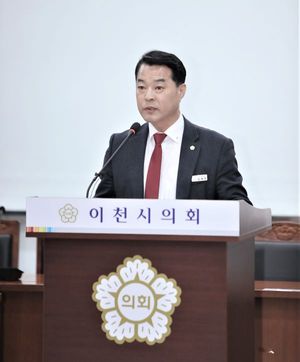
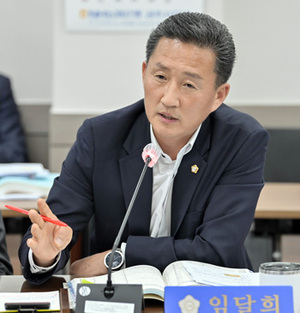
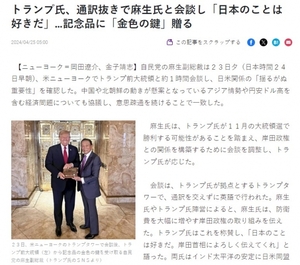
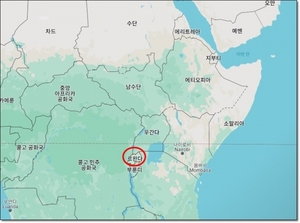

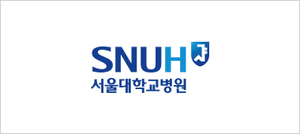
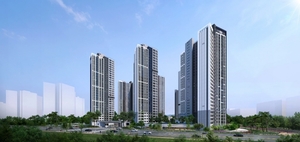


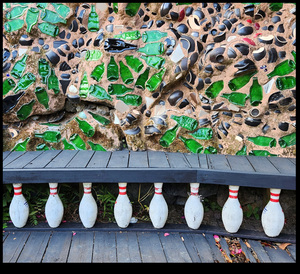

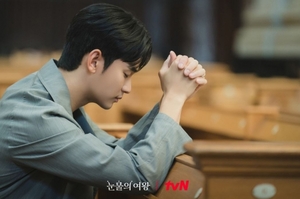

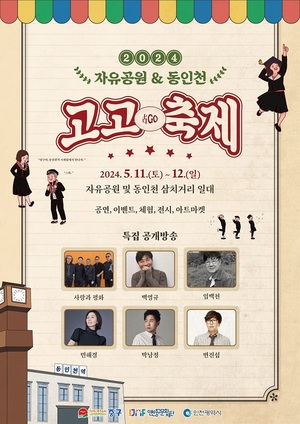
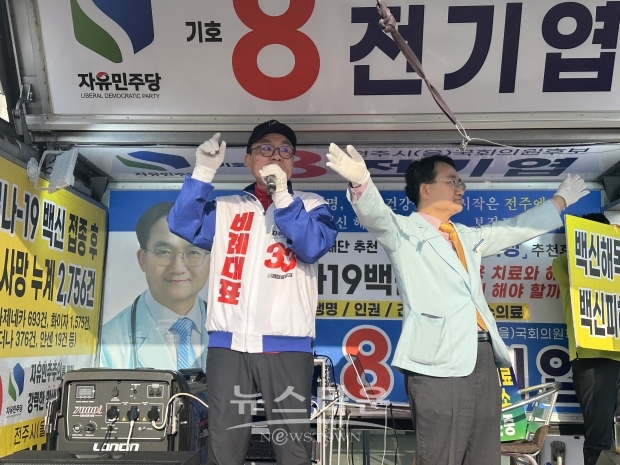
![[특별대담] 제22대 국회의원 선거 자유민주당 인천 서구병 이진기 예비후보](/news/photo/202403/600022_545770_3853.jpg)
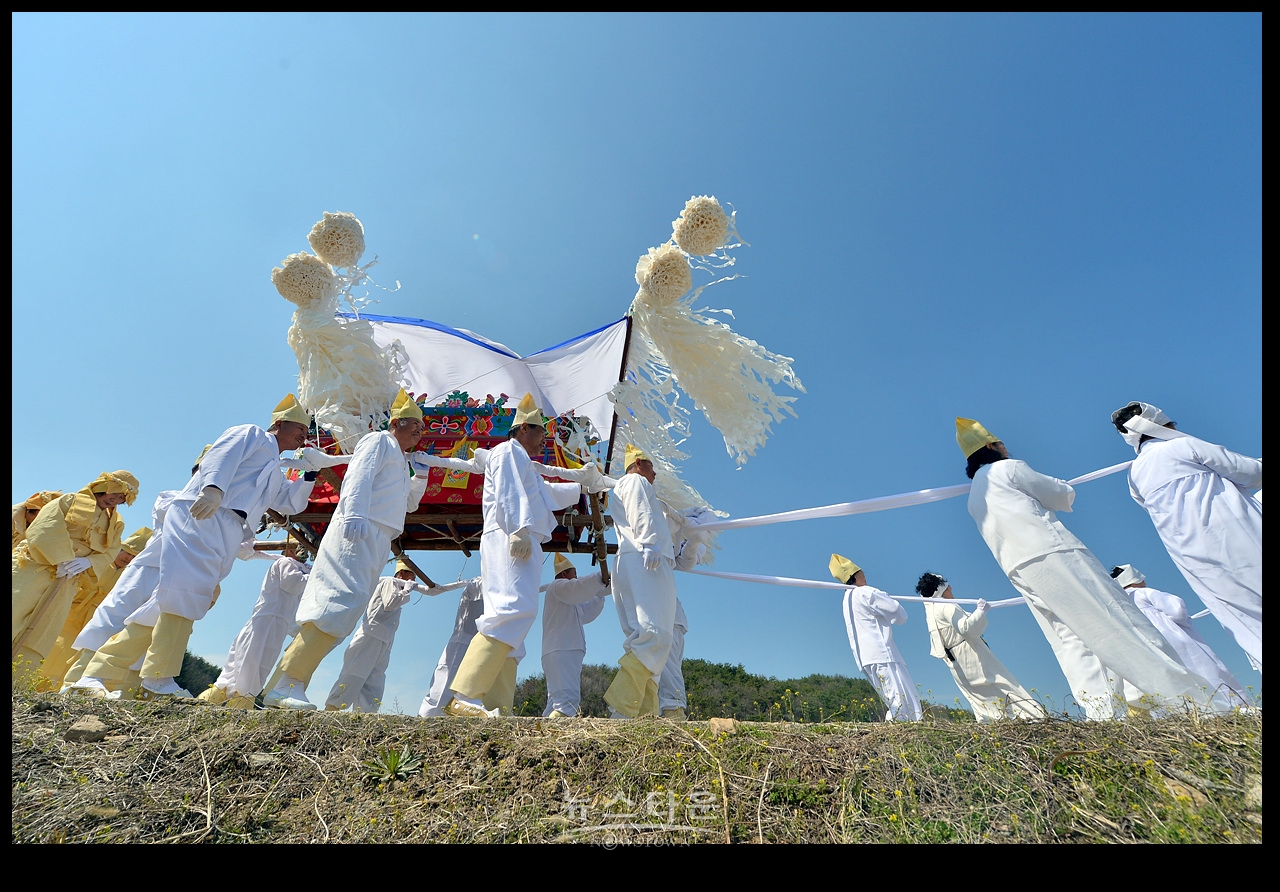
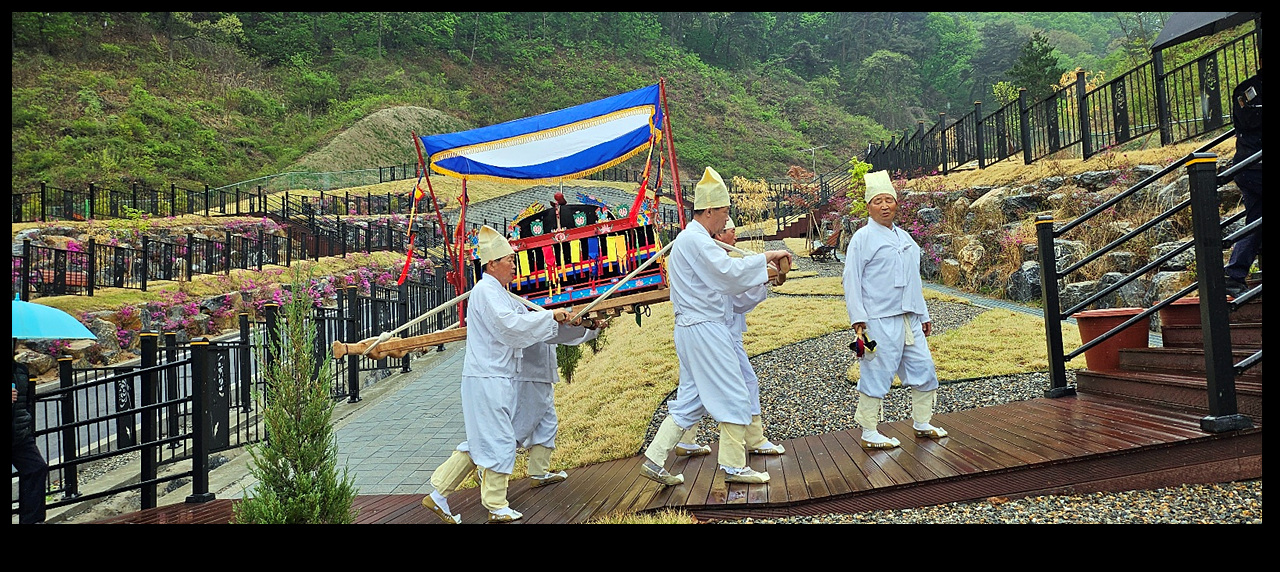



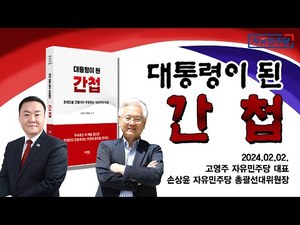
![[긴급시국분석] 북한의 내년 4월 총선 전후 기습남침과 좌파들의 내란 및 전민봉기 철저히 대비하라!](/news/thumbnail/202312/592978_536686_4219_v150.jpg)